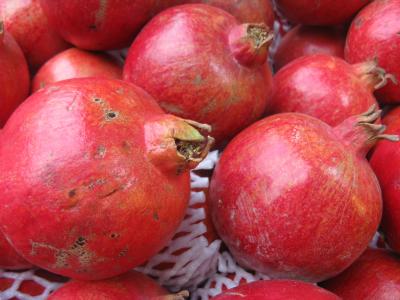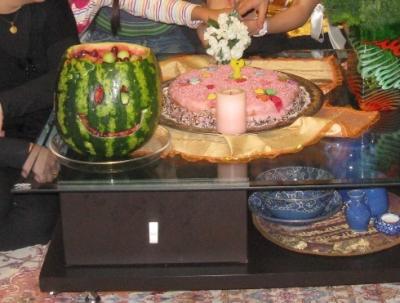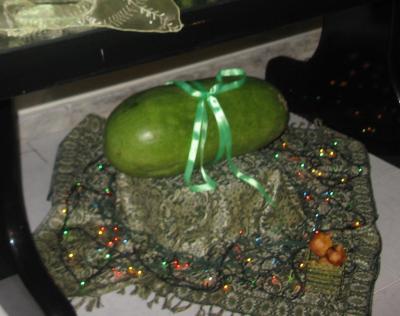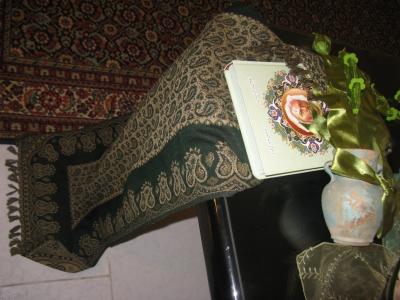... newer stories
Wednesday, 21. December 2011
SHABE YALDA_2 :-))))))))))))))))
ipuenktchen, 15:43h


HAPPY BIRTHDAY, dear yashila_81!!!!!!!!!!!!!!!!!!!!!!

die deutsche sitte kam ja fuer beide, yasha & lili, nicht zur anwendung, dass jmd, der am 3o. geburtstag noch junggeselle ist, die rathaustreppe fegen/rathaustuerklinke putzen muss, bis eine jungfrau/ junggeselle vorbeikommt und ihm/ ihr einen kuss gibt... hehe..
we have a german custom, if somebody isn't still married not yet until his/ her 30th b-day, he/ she have to clean the stairs of municipality untill there is another unmarried person passing by and ready to kiss him/her....... but there was no need, as both, lili & yasha had been married before their 30th b-day.... :-p
and later here be patient to find a pic of lilis 30th b-day!!!!
and from his b-day, too!!

@yashila_81
pls have a look here, too..............
http://forum.postcrossing.com/viewthread.php?tid=49176&page=61
http://www.google.com/search?q=rathaustreppe+fegen+30.+geburtstag&hl=en&client=firefox-a&rls=org.mozilla:en-US&prmd=imvns&tbm=isch&tbo=u&source=univ&sa=X&ei=xMXxTvqSIIfG-Qbjp_20AQ&ved=0CIgBELAE&biw=974&bih=566
... link (0 Kommentare) ... comment
SHABE YALDA_1... :-)
ipuenktchen, 04:07h
Yalda night, a starry Persian epilogue to autumn
(thank you to Maryam Ala Amjadi, Tehran Times)
*****wintersonnenwende ***** winter solstice*****
The last eve of autumn and the beginning of winter is a ceremonious and auspicious night for Iranians. Known as the longest and darkest night of the year, December 21st is celebrated in the memory of the victory of light over darkness. ‘Yalda’ (in Syriac, a dialect of old Aramaic language, means ‘birth’) marks the birth of winter and the triumph of the sun as the days grow longer and colder.
In ancient Persian legends, khorshid (Persian word for sun) was a beautiful woman, with wide, large black and luminous eyes and maah (Persian word for moon) who happens to be passionately in love with her, searches for her in the sepehr (Persian word for skies) day and night. The stories of Mehr (Old Persian word for sun, also sun deity) and Maah are a part of Old Iranian folklore culture.

The festival is also known as ‘shab-e-chelleh’ (the night of the chelleh, meaning forty) which refers to the forty days of winter that are supposedly the coldest and initially hardest to bear. Some scholars, however, differentiate between Yalda and Chelleh based on their historical origins.

Dated as old as 70 centuries ago, Yalda is one of the most important festivals of ancient Iran and it is still celebrated to this day. Although it is not an official holiday, the festival is widely celebrated across the country and television and radio have special programs for this night. Chelleh neshini (sitting for chelleh) is a social occasion when families and friends gather usually at the house of an elder (grandparents, aunts or uncles) to rejoice in warmth of one another’s company as naneh sarma (Cold Ma, a character in Persian folklore who brings in the cold of winter) begins to descend on earth. Ajil (a mixture of dry fruits, seeds and nuts) and fresh winter fruits are served to the guests. The dry fruits are somehow a reminiscence of the abundance of summer and the fresh fruits are an invocation for food during winter.

Watermelon and pomegranates (symbol of bounty) are the traditional fresh fruits of this night. It is believed that eating watermelon before the advent of winter can immunize one to cold and illness. The red color and the fleshy texture are also reminiscent of sunrise and the birth of the first day of winter. Cooked pumpkin is also another winter treat on Yalda night. In fact, all dishes represent health, prosperity and joy. Fruits and kernels full of seeds also bring to the mind a sense of productivity and fertility as the dearth of winter approaches.

All food items are arranged on a spread known as sofreh (traditional table cloth available in various materials and patterns), usually by women of the house. After a fresh and hot dinner, people stay awake usually most of the night while they recite poetry, narrate stories, sing, play musical instruments or just chat in the coziness of their homes and among their loved ones. They also make phone calls to friends and close ones or send text messages to congratulate them on this night.

Another beautiful and meaningful tradition is Faal-e-Hafez (bibliomancy by using the book of poems by Hafez). Usually, the eldest member of the family who is also literate will open a random page of the poems after all the guests have stated a niyat (literally meaning, intention or wish) in their hearts. He or she will then read out that random poem and they will find their answers in their own interpretation of that particular poem.

As the longest night of the year, Yalda is also deemed as a symbol of separation from the beloved, a period of anticipation and longing after which comes the day and the dawn of hope. Sometimes it also stands as a symbol of the beloved’s hair (long and dark) in Persian literature. It is also believed that people’s wishes are granted on this day.

Though Yalda night is almost unanimously celebrated across the country, regional variations of this ritual are also interesting. In all places, generally people celebrate by eating pomegranate and watermelon.
People of Azerbaijan (northwestern Iran) believe eating watermelon will not let the cold of winter into their bones. Also, on this night, new brides carry gifts to brides-to-be of the family. These gifts are decorated with watermelon and a large red scarf covering it. Red is an auspicious color among the Azari people. In Ardabil, people ask the chelleh bozorg (first forty days of winter) to promise them to be moderate as they wish for a good winter time.
we added some pics of our shabe yalda - which is btw also the b-day of ipue's son2........
(thank you to Maryam Ala Amjadi, Tehran Times)
*****wintersonnenwende ***** winter solstice*****
The last eve of autumn and the beginning of winter is a ceremonious and auspicious night for Iranians. Known as the longest and darkest night of the year, December 21st is celebrated in the memory of the victory of light over darkness. ‘Yalda’ (in Syriac, a dialect of old Aramaic language, means ‘birth’) marks the birth of winter and the triumph of the sun as the days grow longer and colder.
In ancient Persian legends, khorshid (Persian word for sun) was a beautiful woman, with wide, large black and luminous eyes and maah (Persian word for moon) who happens to be passionately in love with her, searches for her in the sepehr (Persian word for skies) day and night. The stories of Mehr (Old Persian word for sun, also sun deity) and Maah are a part of Old Iranian folklore culture.

The festival is also known as ‘shab-e-chelleh’ (the night of the chelleh, meaning forty) which refers to the forty days of winter that are supposedly the coldest and initially hardest to bear. Some scholars, however, differentiate between Yalda and Chelleh based on their historical origins.

Dated as old as 70 centuries ago, Yalda is one of the most important festivals of ancient Iran and it is still celebrated to this day. Although it is not an official holiday, the festival is widely celebrated across the country and television and radio have special programs for this night. Chelleh neshini (sitting for chelleh) is a social occasion when families and friends gather usually at the house of an elder (grandparents, aunts or uncles) to rejoice in warmth of one another’s company as naneh sarma (Cold Ma, a character in Persian folklore who brings in the cold of winter) begins to descend on earth. Ajil (a mixture of dry fruits, seeds and nuts) and fresh winter fruits are served to the guests. The dry fruits are somehow a reminiscence of the abundance of summer and the fresh fruits are an invocation for food during winter.

Watermelon and pomegranates (symbol of bounty) are the traditional fresh fruits of this night. It is believed that eating watermelon before the advent of winter can immunize one to cold and illness. The red color and the fleshy texture are also reminiscent of sunrise and the birth of the first day of winter. Cooked pumpkin is also another winter treat on Yalda night. In fact, all dishes represent health, prosperity and joy. Fruits and kernels full of seeds also bring to the mind a sense of productivity and fertility as the dearth of winter approaches.

All food items are arranged on a spread known as sofreh (traditional table cloth available in various materials and patterns), usually by women of the house. After a fresh and hot dinner, people stay awake usually most of the night while they recite poetry, narrate stories, sing, play musical instruments or just chat in the coziness of their homes and among their loved ones. They also make phone calls to friends and close ones or send text messages to congratulate them on this night.

Another beautiful and meaningful tradition is Faal-e-Hafez (bibliomancy by using the book of poems by Hafez). Usually, the eldest member of the family who is also literate will open a random page of the poems after all the guests have stated a niyat (literally meaning, intention or wish) in their hearts. He or she will then read out that random poem and they will find their answers in their own interpretation of that particular poem.

As the longest night of the year, Yalda is also deemed as a symbol of separation from the beloved, a period of anticipation and longing after which comes the day and the dawn of hope. Sometimes it also stands as a symbol of the beloved’s hair (long and dark) in Persian literature. It is also believed that people’s wishes are granted on this day.

Though Yalda night is almost unanimously celebrated across the country, regional variations of this ritual are also interesting. In all places, generally people celebrate by eating pomegranate and watermelon.
People of Azerbaijan (northwestern Iran) believe eating watermelon will not let the cold of winter into their bones. Also, on this night, new brides carry gifts to brides-to-be of the family. These gifts are decorated with watermelon and a large red scarf covering it. Red is an auspicious color among the Azari people. In Ardabil, people ask the chelleh bozorg (first forty days of winter) to promise them to be moderate as they wish for a good winter time.
we added some pics of our shabe yalda - which is btw also the b-day of ipue's son2........
... link (0 Kommentare) ... comment
... older stories